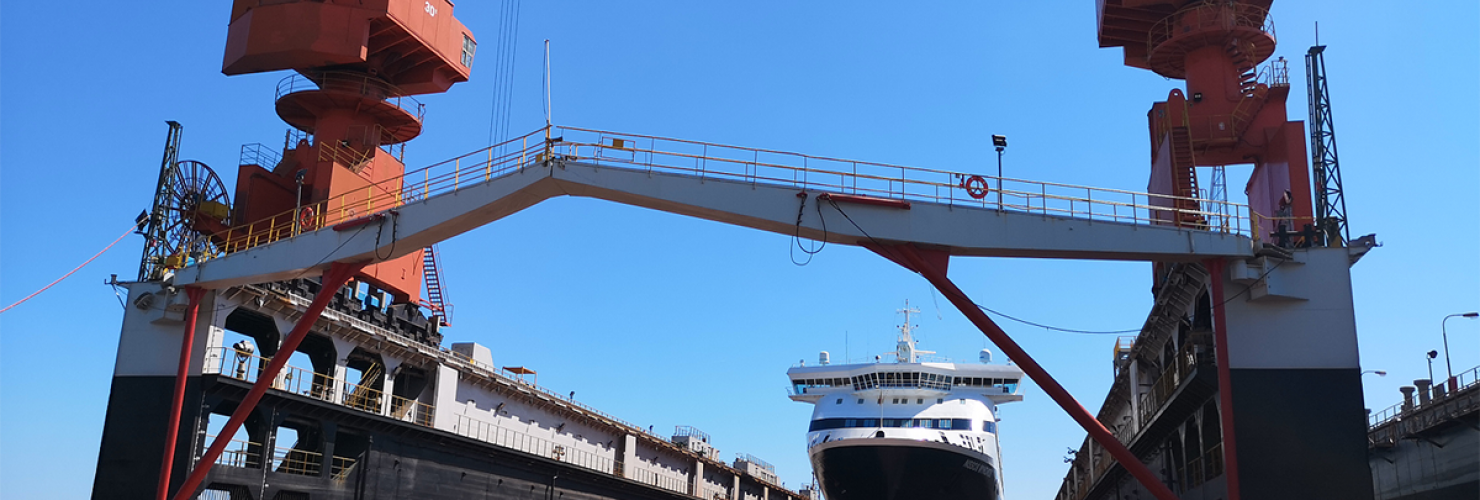

Some Athenians are all Greek to the Chinese
In Athens, local resistance to investment from China is not so much about opposing China, as resistance to change, says MERICS freelance researcher Jacob Mardell. He is currently travelling countries along the Belt and Road to investigate how the initiative is being implemented on the ground.
There are two types of Chinese immigrant in Athens. The first type is found amid the fever-hot hustle and bustle of the Metaxourgeio “ghettos” and leverages connections back home to sell cheap clothes and luggage to the bargain hunters of Athens. These men and women started arriving in the 1980s from entrepreneurial, coastal Chinese cities like Wenzhou and Fuzhou.
The second type are well-to-do immigrants, with money and the impetus to start a new life in Europe - the type of people we’d refer to as “expats” in polite conversation. This new wave of migration is more recent, dating back to 2013, when Greece rolled out a cash-for-residency scheme that enables foreigners to obtain a “Golden Visa” if they spend at least 250,000 Euros on property. So far, 12,666 people have come to Greece on a Golden Visa, and almost two-thirds of them are from China.
The tourist industry looks hungrily to the Chinese market
Chinese tourists also bring cash to the economy – though not enough of it according to Effi, a Greek tour guide: “Most of them are not spending time, not spending money here,” she tells me. “They’re on all-inclusive packages - one or two might buy a tax-free Chanel bag, but that’s it.” The tourists I speak to are indeed on a tight schedule: groups gather in the olive groves at the foot of the Acropolis, listen to their tour guides, consult maps, disperse, and usually end up at Fu Yun Long for lunch.
The Greek tourist industry still looks hungrily to the Chinese market for growth. In an effort to induce the Acropolis visitors to stay longer, the Piraeus Port Authority (PPA) has come up with a “master plan” that involves converting old warehouses into five-star hotels. Piraeus is already the beneficiary of Chinese businesspeople. Pressured by the EU to privatize state assets following the debt and economic crisis, Greece sold 67 percent of PPA to Chinese shipping colossus COSCO, a company that had been operating and investing in Piraeus as Piraeus Container Terminal SA (PCT) since 2010.
Picking up on a quote from the Chinese ambassador describing Piraeus as Europe’s “dragon head,” commentators like to emphasize Piraeus’ role in reaching Northern European markets via the Belgrade-Budapest railway, but this is only a tiny part of the story. Piraeus’ primary function is trans-shipment by sea - breaking down the mega-ships that come from China through the Suez Canal and putting containers on smaller feeder vessels that head to dozens of ports across Europe.
Chinese ownership per se is not the main objection to COSCO
It’s the Chinese businesspeople involved with PPA and PCT that are focused on and successfully achieving economic growth. This means money, jobs, and progress - but also means noise, pollution, and more industry. Speaking to people in the poor Piraeus’ neighbourhood of Perama, it is this and not Chinese ownership per se that appears to be the main objection to COSCO. Good fortune is relative – things are getting better in Perama, but many still remember how good times were before the crisis.
Everyone in Perama knows someone – a cousin, a friend – who owes their job to COSCO. A young man tells me about a neighbour, five years out of work, whom COSCO took on despite his advanced age. A woman, late 30s, tells me about a cousin who found work at the port as a driver. She goes on to say that she’s not a fan of COSCO. She grew up here, and it’s sad to see what Perama has become: “When I was ten, we kept the doors open all day, we had fresh air, and a nice view of the mountains.”
China – ironically or not – has come to represent neoliberalism
In a country governed by Syriza, the “coalition of the radical left,” Perama is especially old-school left. Neoliberalism is a dirty word around these parts. And China – ironically or not – has come to represent it. In Piraeus, I spend an evening sipping beer with a former trade union leader, Giannis Tsalimoglou, who tells me about COSCO’s erosion of workers’ rights and benefits. The conversation is long, but one sentence stands out: “They come, and they turn everything upside down.”
At a higher level, resistance to change is led by Greece’s powerful Central Archaeological Council (KAS), which has raised objections to COSCO’s ambitious development plans. The opposition party, New Democracy, has connected the decision to Syriza’s “ideological obsessions,” but others tell me local politics is probably to blame. Polyxeni Ntavarinou, an expert at the Institute of International Economic Relations, says KAS’ recalcitrance is something akin to a “natural process” to the locals.
Natural or not, it’s a local resistance unfamiliar to Chinese investors. Like most of the long-term Chinese residents of Athens, Lan Sidian’s father is from Fujian province. Lan junior is CEO of Golden Alliance Investment Group, an offshoot of his father’s company that helps Chinese land their Golden Visas. When the conversation turns to KAS and the long delayed, Chinese-backed Hellenikon Airport, Lan sighs. “You don’t see any skyscrapers here. Imagine if they turned just one of their islands into a free trade zone. Imagine if the Greeks opened up just a little bit. But they are afraid of change.”

